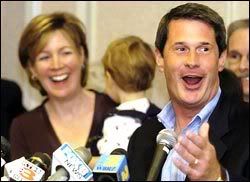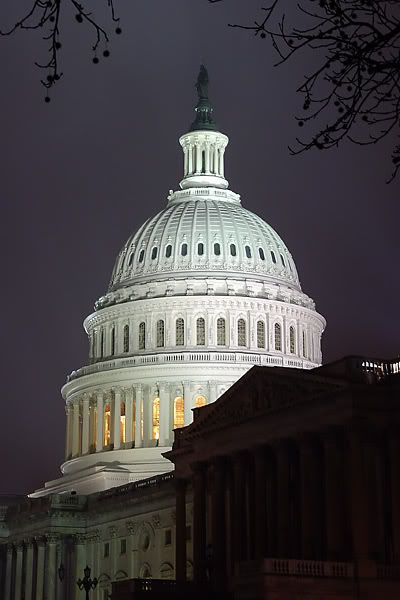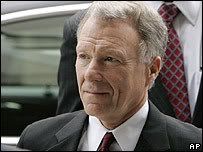 The Beverly House, 1011 Beverly Drive in Beverly Hills. Built in 1927, it was designed by Gordon Kaufmann, who also was the architect of the nearby Greystone mansion, considered by many to be the finest home in Beverly Hills. William Randolph Hearst paid about $120,000 for the estate in 1947.
The Beverly House, 1011 Beverly Drive in Beverly Hills. Built in 1927, it was designed by Gordon Kaufmann, who also was the architect of the nearby Greystone mansion, considered by many to be the finest home in Beverly Hills. William Randolph Hearst paid about $120,000 for the estate in 1947.The LATimes reports:
Priced to sell: $165,000,000
The Beverly House, former mansion of newspaper tycoon William Randolph Hearst and actress Marion Davies, four homes plus apartment and security staff’s cottage on 6.5 acres north of Sunset, 29 bedrooms, state-of-the-art theater, three swimming pools. Up-and-coming neighborhood. List price: $165 million.
The rich are getting richer, and their properties are getting pricier.
The 1920s-era Beverly Hills mansion of William Randolph Hearst and Marion Davies was put on the market Monday for $165 million, making it the nation's most expensive residential listing.
The pink stucco, H-shaped estate, dubbed Beverly House by the late newspaper magnate, is spread across 6.5 acres north of Sunset Boulevard. It has just about everything a billionaire could want — including three swimming pools, 29 bedrooms, a state-of-the-art movie theater and even a disco.
The compound boasts six separate residences — four houses, an apartment and a cottage for the security staff.
"This is the kind of home that comes on the market once in a generation," said Jeff Hyland, a Beverly Hills real estate broker and author of "The Estates of Beverly Hills."
The seller, attorney-investor Leonard M. Ross, bought the property in 1976 and is now seeking "a lifestyle change," said his real estate broker, Stephen Shapiro.
The asking price surpasses the $155 million being sought by developers of an estate in Montana's Big Sky country, and the $135-million price of an Aspen, Colo., compound being sold by Prince Bandar bin Sultan of Saudi Arabia.Hala, at 56,000 square feet, sits on 95 acres of land and overlooks the Aspen valley and mountains beyond.
In the last two years, six U.S. residences have come on the market with nine-digit price tags, according to Rick Goodwin, publisher of Ultimate Homes magazine, an annual compendium of the world's hottest properties.
Yet, so far, no U.S. home sale has broken the $100-million mark. (None of the six noted by Goodwin has sold.) The record remains the $94 million paid by former telecom mogul Gary Winnick for a Bel-Air estate in 2001.
"It's only a matter of time" before the record falls, Goodwin predicted.
With its breathtaking asking price, the latest Beverly Hills listing adds more luster to the region's Platinum Triangle, the neighborhoods of Beverly Hills, Bel-Air and Holmby Hills, where the pace of multimillion-dollar sales has outshone the rest of Southern California's slumping housing market.
From January to May, the number of homes in the Platinum Triangle that sold for at least $10 million more than doubled compared with the year-earlier period. In contrast, Los Angeles County overall saw a 19% decline in sales for the same period.
New homeowners in the Platinum Triangle include actor Tom Cruise and his actress wife, Katie Holmes, Amazon.com Chief Executive Jeff Bezos and soccer star David Beckham and his wife, Spice Girl Victoria Beckham.
Experts say the high-end trend reflects the growing ranks of the wealthy, who so far have been immune from the troubles besetting the lower rungs of the housing market.
"There are many more people with much more money, and they are all chasing the elusive 'great estate' that is hard to find," said Shapiro, co-owner of Westside Estate Agency. "And they are especially hard to find in an area like this that's completely built out."
Built in 1927 for banker Milton Getz, the estate was designed by Gordon Kaufmann. Kaufmann was also the architect of the nearby Greystone mansion, considered by many to be the finest home in Beverly Hills.
Hearst bought the Getz property in 1947, paying about $120,000. He promptly moved in his paramour, Davies, as well as life-size paintings of the actress and statues from the gardens of his landmark Hearst Castle in San Simeon.
The power couple were renowned for their frequent parties attended by the toast of Hollywood, politicians and media bigwigs.
But Hearst's time at the compound was short-lived. He died there in 1951 at the age of 88.
Davies married movie extra Horace Brown 10 weeks after Hearst's death and continued to play host to the glitterati.
John F. Kennedy and his bride, Jacqueline, spent part of their honeymoon at the estate in 1953, and later returned when the mansion was used as the West Coast headquarters for Kennedy's presidential campaign.
Davies died in 1961 and Brown subdivided and sold the property in 1966.
Ross, the current owner, bought it in 1976 and restored the structures, gardens, fountains and bought back some of the subdivided acreage.
The estate was used in the film "The Godfather," including for a scene in which a movie producer awakens to find a severed horse's head in his bed.
The house was on the market 20 years ago with an asking price of $25 million, one of the highest listings of the time, but was taken off the market without being sold.
Until Monday, the highest-priced local listing was the $125 million sought for the Beverly Hills estate known as Fleur de Lys, which came on the market in April and is located a mile from the former Hearst mansion.
"It's nice to see L.A. get into the high-end luxury game this way," Goodwin said. "L.A. has not only just become the game but is the leading player."
Still, Goodwin said he was holding off any celebration until there was a "sold" sign in sight. It's not unusual for multimillion-dollar properties to take years to find the right buyer.
"It's all fun and interesting, but the real excitement will be the day when something sells for $100 million or more," he said.














